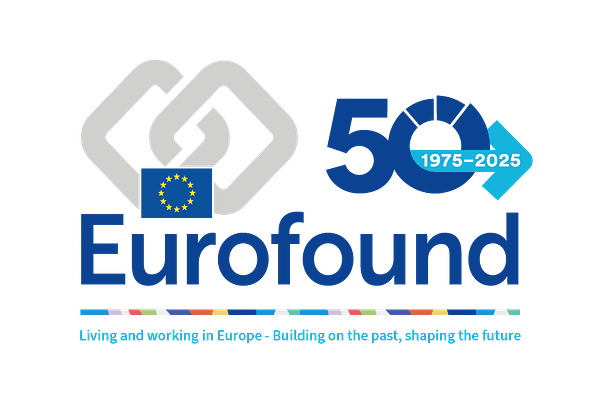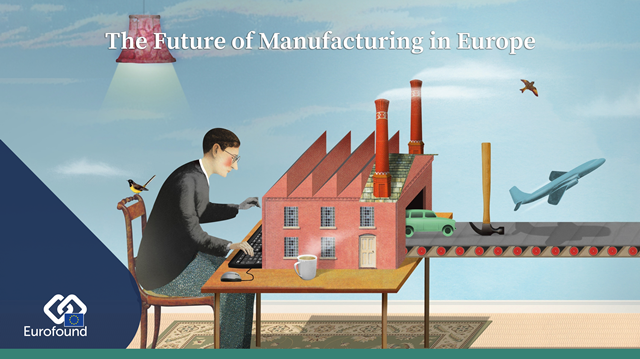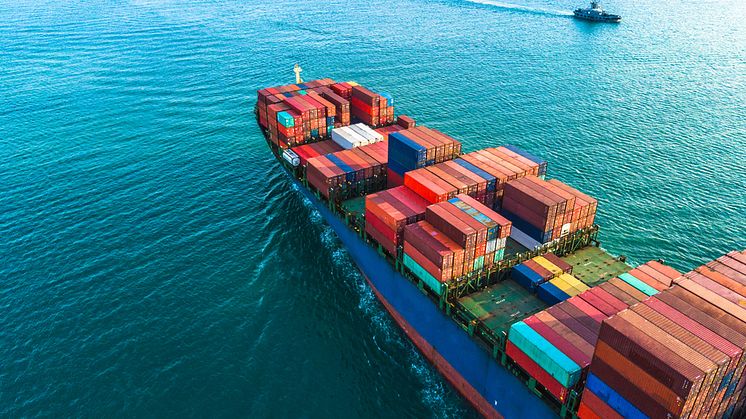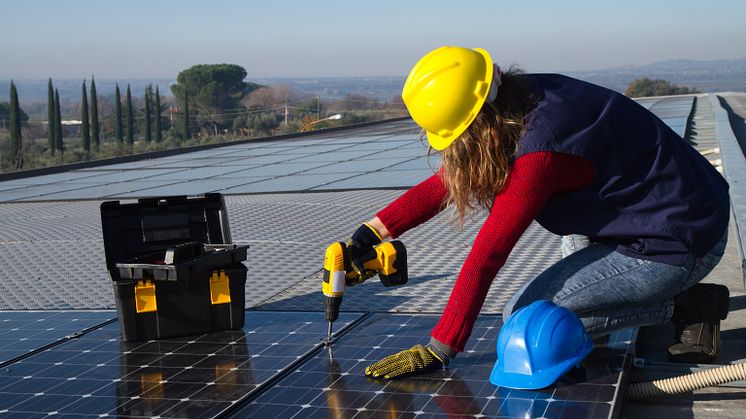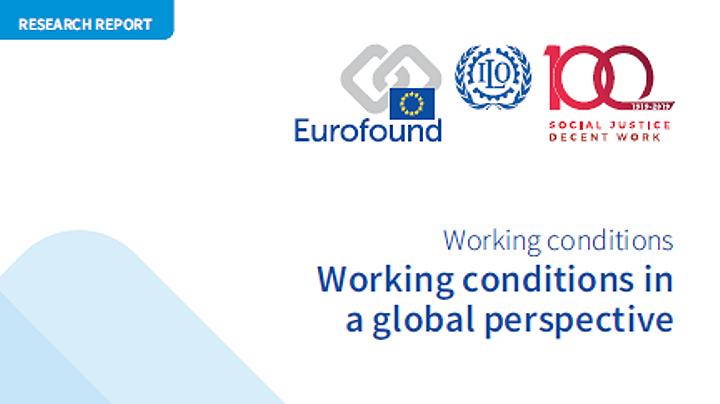
Press release -
Common challenges face workers across the globe but working women most at risk in every country, continent
(DUBLIN, IRELAND/GENEVA, SWITZERLAND): Despite differences in economic structure, labour markets and development, a pioneering study of the working conditions and job quality of 1.2 billion workers finds common concerns and challenges across 41 countries and four continents. In particular, women across the globe continue to earn significantly less than men overall, to work more hours than men overall and to experience significant occupational and job-related inequalities. Indeed, job quality varies greatly across occupations for workers in all countries. Job insecurity is widespread and exposure to physical risks is frequent. Notwithstanding, about 70% of all workers still report a largely supportive social environment at work. These are the findings from a new report – a collaboration between the International Labour Organization and Eurofound – which provides a comparative analysis of job quality for workers across Europe, Asia and the Americas.
While the report places a timely spotlight on the particularly adverse context for women at work across the globe, all categories of workers face challenges, as the data on the different dimensions of job quality make clear. Exposure to physical risks, for example is frequent. More than half of workers in the regions and countries covered are exposed to repetitive hand and arm movements, making it the most reported physical risk. One-quarter or more of workers are frequently exposed to high temperatures at work and a similar proportion report exposure to low temperatures. Between one-fifth and one-third of workers report loud noise.
‘Job quality can be improved - by reducing excessive demands on workers and limiting their exposure to risks – and also by increasing their access to work resources that help in achieving work goals or mitigate the effects of these demands,’ says Juan Menéndez-Valdés, Eurofound’s Executive Director. ‘Workers and employers and their organisations each have a role to play in improving job quality since social dialogue is critical for devising policies in the workplace and beyond. Public authorities should regulate with the common goal of improving job quality in mind.’
“Good working conditions contribute to the well-being of workers and the success of enterprises,” said Manuela Tomei, Director of the ILO’s Workquality Department. “Understanding the issues that affect the well-being and productivity of working women and men is a critical step towards achieving decent work for all. This is particularly true at a time when new technologies and new forms of work organisation are reshaping the world of work.”
Between a third and half of all workers covered also experience intensive work, such as tight deadlines and high-speed work and up to 40% of workers have jobs with high emotional demands.
Differences in working time quality among countries are stark however: whereas one-sixth of workers in EU countries work more than 48 hours per week, in the Republic of Korea, Turkey and Chile around half of workers do so. Across the countries, at least 10% of workers work during their free time and while in most countries, men report longer hours of paid work than women. When hours of unpaid work are included then, without exception women work longer hours than men. Across the countries, women also earn significantly less than men and are over-represented at the lowest end of the earnings distribution.
Regarding prospects, job insecurity is widespread, with between 4% in the Republic of Korea and 27% in Uruguay report that they might lose their job in the next six months. Similar levels of job insecurity were reported for Europe and Turkey (respectively 16% and 15%); and 10% in the USA. On the positive side, between 30% and 60% report that their job offers prospects for career advancement but across the world the least educated are those who receive the least access to further training or development.
This joint report offers a unique insight into aspects of job quality across the globe, looking at different countries and societies in an attempt to go beyond national explanations. The results underline the critical need for reliable data to support evidence-based policy-making to address the intransigent issues of gender and occupational inequalities at work.
More information
Publication: Working conditions in a global perspective
Topic page: Working conditions and sustainable work
Data visualisation: The European Working Conditions Survey
About the report
This report provides a comparative analysis of job quality covering approximately 1.2. billion of the world’s workers in the EU28, China, the Republic of Korea, Turkey, the United States, Spanish-speaking Central America (Costa Rica, El Salvador, Guatemala, Honduras, Nicaragua and Panama), Argentina, Chile and Uruguay. It is the result of a pioneering project for the collection and analysis of data on working conditions around the world by the International Labour Organisation (ILO) and Eurofound, both tripartite agencies that aim to improve working conditions and the well-being of workers.
About the International Labour Organisation ILO
The International Labour Organization (ILO) is a United Nations agency whose mandate is to advance social justice and promote decent work by setting international labour standards. It is the only tripartite U.N. agency, and since 1919 the ILO brings together governments, employers and workers of 187 member States, to set labour standards, develop policies and devise programmes promoting decent work for all women and men.
Topics
Categories
For more information about Eurofound and its work, and free access to all our data and findings, visit our website and follow us on these social media channels: Twitter, LinkedIn, and Facebook.
For upcoming publications and events please see our Corporate Calendar 2019.
